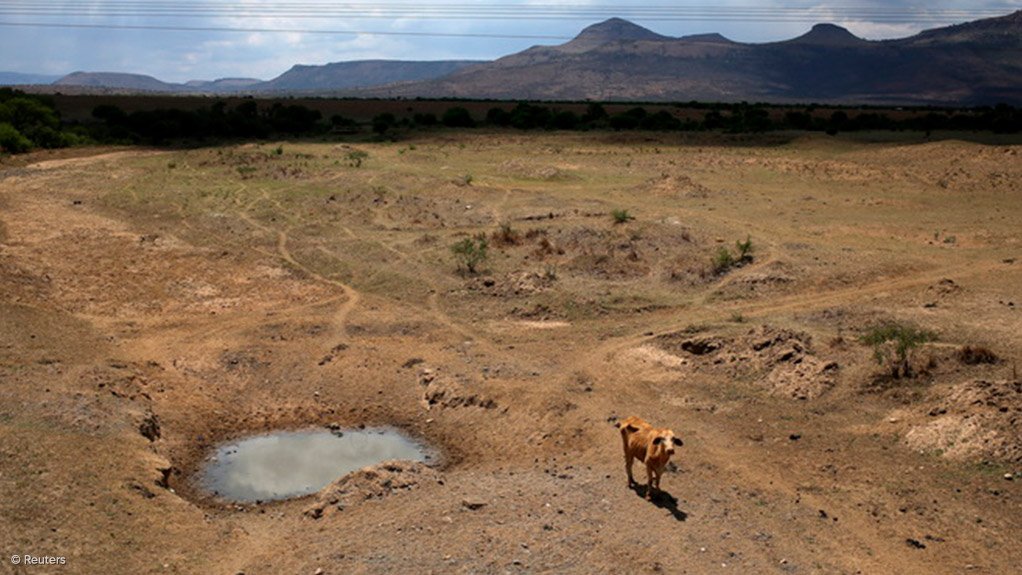/ MEDIA STATEMENT / The content on this page is not written by Polity.org.za, but is supplied by third parties. This content does not constitute news reporting by Polity.org.za.
Gqeberha in the Eastern Cape has been on the verge of the seemingly inevitable Day Zero of no water for months, but Government has made no provision to protect Employees when the dreaded moment comes.
Teboho Thejane, spokesperson for the Department of Employment and Labour, says he is not aware of specific guidelines issued by the Department to assist Employees or Employers on how to handle Day Zero.
According to him, this first ever situation in the country will be guided by the Occupational Health and Safety Act (OHSA) read together with the Labour Relations Act (LRA) and the Basic Conditions of Employment Act (BCEA).
Sputnik Ratau, spokesperson of the Department of Water and Sanitation (DWS), says his department is not a labour regulator. “Therefore, there is no way the DWS can guide this kind of arrangements between labour and employer. That would be the responsibility of the Department of Employment and Labour which is responsible for policy guiding labour practices.”
Zondo Sikhumbuzo, the Chief of Staff of DWS, acknowledged the concern MISA raised. “This is receiving the necessary attention it deserves.”
Martlé Keyter, Chief Executive Officer: Operations of MISA, Motor Industry Staff Association, says unfortunately the legislation the Department of Employment and Labour referred to, nor the Main Agreement of the Motor Industry Bargaining Council (MIBCO), makes provision for the situation that residents of Gqeberha is faced with.
According to MISA members, residents have been informed where the taps in their designated areas are, where they will have to go to fetch water from water tanks, if the taps run dry.
The debate in the workplace is whether the Employer can be forced to allow Employees to fetch water during office hours.
Keyter says the answer is no.
Legislation does not provide for leave or time off in circumstances such as these. South Africa was faced with the situation in July 2018 when Cape Town faced Day Zero, but then it rained.
Day Zero has been looming over Gqeberha for months, until the area had some rain last week.
“With no legislation in place, it means that Employees would have to use annual leave or unpaid leave to collect their daily water allowance at a water collection point. It is also important to remember that the Employer has the right to deny leave if it is does not suit the operational requirements of the business. Employees don’t have a right to take leave whenever they want to.”
According to Keyter the crisis is inevitable. Although there is no provision for Employees to expect the Employer to allow them to fetch water during office hours, MISA would like to see the parties making compromises to accommodate each other.
The situation in Gqeberha is the result of years of severe drought and municipal mismanagement. The city estimates it loses about a third of its water supply to leaks in its piping, and has a backlog of about 3,000 unfixed leaks.
According to experts, water shortages has become a way of life in South Africa due to recurring droughts exacerbated by climate change.
The retail motor industry was hit hard by the impact of climate change in Easter this year due to the floods in KwaZulu-Natal. Toyota South Africa Motors (TSAM) had to shut down its Prospecton plant south of Durban after it was flooded.
The assembling of Hino commercial vehicles resumed on 23 May 2022, but Toyota is still busy with the recovery of the rest of the facilities where the Corolla Cross, Quest, Hilux, Hiace Ses’fikile and Fortuner are produced.
Issued on behalf of MISA by Sonja Carstens, Media, Liaison and Communication Specialist.
EMAIL THIS ARTICLE SAVE THIS ARTICLE ARTICLE ENQUIRY
To subscribe email subscriptions@creamermedia.co.za or click here
To advertise email advertising@creamermedia.co.za or click here











